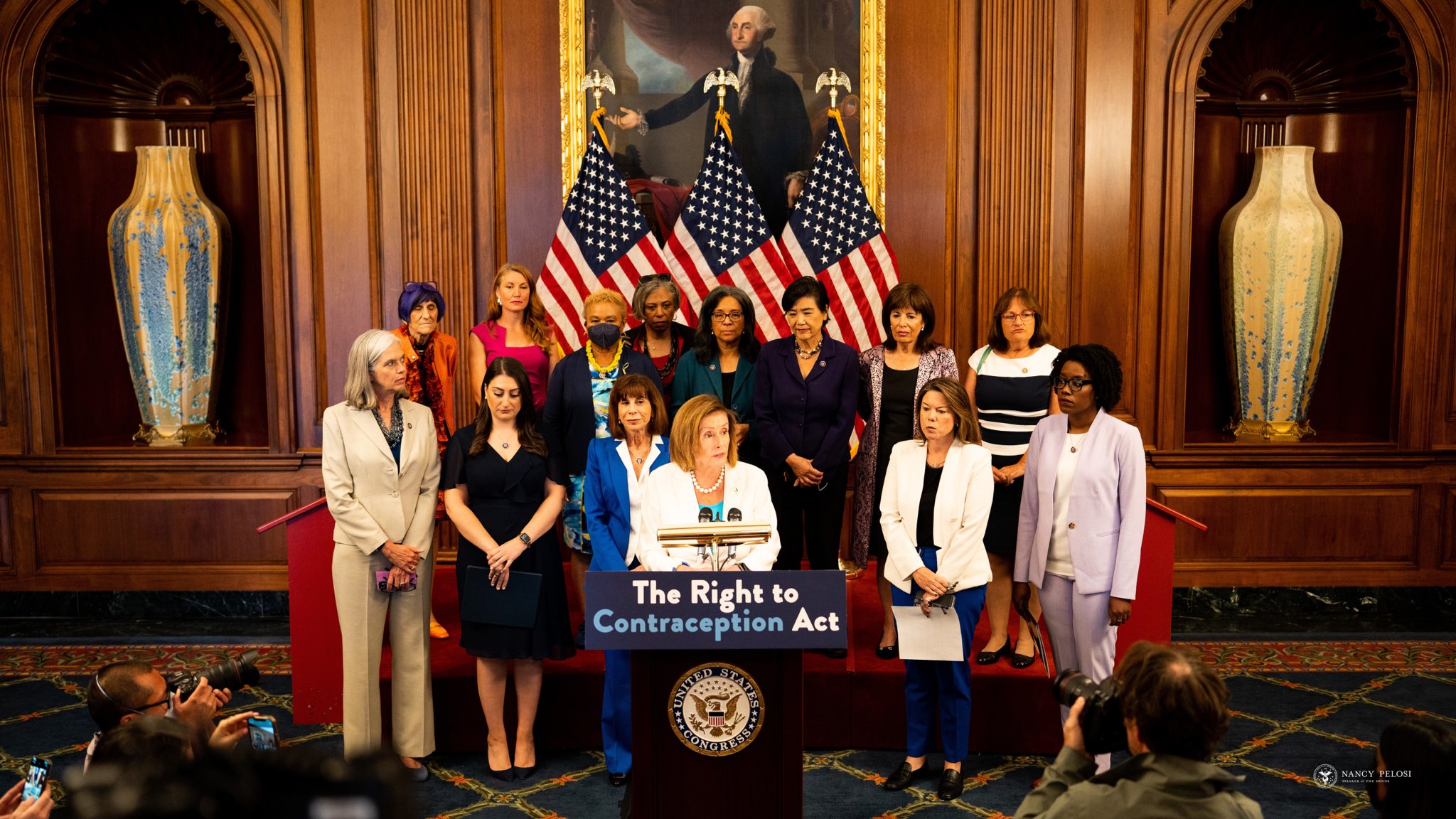The U.S. House of Representatives, on a 228–195 vote, passed legislation Thursday that would create a statutory right to pregnancy prevention, affirm the right of doctors and health care workers to provide contraceptives, and secure federal authority to sue states that seek to block the means of family planning.
The Right to Contraception Act drew unanimous support from House Democrats. Opposition came from 195 House Republicans, led by Representative Cathy McMorris Rodgers, R‑Washington (5th District). Eight Republican lawmakers backed the measure while two Republicans voted “Present.”
The contraception measure was one of four bills inspired by the U.S. Supreme Court ruling that overturned Roe v. Wade and took away Americans’ right to access reproductive healthcare throughout the country. Specifically, the bills were inspired by a concurring opinion by Justice Clarence Thomas in which Thomas urged the court to “reconsider” previous rulings that legalized contraception, same-sex marriage, and consensual sex acts between adults.
The Supreme Court initially legalized contraception for married couples in its 1965 Griswold vs. Connecticut decision, in which U.S. Supreme Court Justice William O. Douglas defined a right of privacy, and later removed barriers for the unmarried.
“It is outrageous that nearly sixty years after Griswold was decided, women must once again fight for fundamental freedom to determine the size and timing of their families,” House Speaker Nancy Pelosi told colleagues.
“But as Republicans turn back the clock on contraception, Democrats today are making it clear. We are not going back.”
The House Speaker took a shot at Thomas: “The associate justice of the court has been clear. We’ve only just begun to overturn women’s rights and individual freedom and privacy when it comes to interaction among us all.”
McMorris Rodgers, as ranking Republican on the House Energy and Commerce Committee, managed floor debate for the opposition.
She delivered a dog’s breakfast of allegations, accusing Democrats of “fear mongering” and “scare tactics,” saying the legislation furthers “Joe Biden’s war on religious liberty and conscience protection.”
“Women deserve the truth, not more fear and misinformation that forces an extreme agenda on the American people,” McMorris Rodgers argued.
She similarly led opposition on Tuesday to a measure codifying the right of same-sex couples to marry. Forty-seven Republicans, including Representative Dan Newhouse, broke ranks to vote yea. So did two other Northwest Republicans: Mike Simpson, R‑Idaho and Clif Bentz, R‑Oregon.
McMorris Rodgers, Newhouse and Jaime Herrera Beutler, R‑Washington (3rd District) all voted nay on the contraception measure.
Among the few Republicans voting yea were Representatives Liz Cheney, R‑Wyoming and Adam Kinzinger, R‑Illinois, the two Republican lawmakers who defied Republican House leadership to serve on the January 6th committee.
The House bills are bound for the Senate, where at least ten Republican votes are needed to cut off debate and move to a vote.
The marriage equality legislation stands a chance of passage, although Senate Minority Leader Mitch McConnell has not yet said how he will vote.
One Washington Democrat, Dr. Kim Schrier, spoke during the contraception debate. “This bill affirms current law that women can determine the path of their lives,” said Schrier, a pediatrician who has prescribed contraceptives for years.
“Everyone should choose means of contraception that meets their needs without interference from politicians,” Schrier added.
Contraception used to be a bipartisan cause. Future President George H.W. Bush, as a Texas congressman in the 1960s, was such an enthusiastic backer of family planning that his colleagues nicknamed him “Rubbers.”
In Griswold, Justice Douglas wrote a powerful opinion that the state should stay out of America’s bedrooms, remarking: “Would we allow the police to search the sacred precincts of the marital bedrooms for signs of the use of contraceptives? The very idea is repulsive to the notion of privacy surrounding the marriage relationship.”
Apparently not to Clarence Thomas and his Federalist Society law clerks.
On the House flood Thursday, Republican speakers mocked what they called “The Right to Deception Act” and “The Payout for Planned Parenthood Act.”
The Republicans said they would support more limited legislation, but nothing that would legalize “morning after” pregnancy terminating pills.
If Republicans retake control of the House, McMorris Rodgers is in line to chair the powerful House Energy and Commerce Committee.
The Eastern Washington House member is an outspoken abortion opponent and supporter of the Supreme Court ruling. She is also sponsoring legislation that would throw open federal lands to oil and gas drilling.

